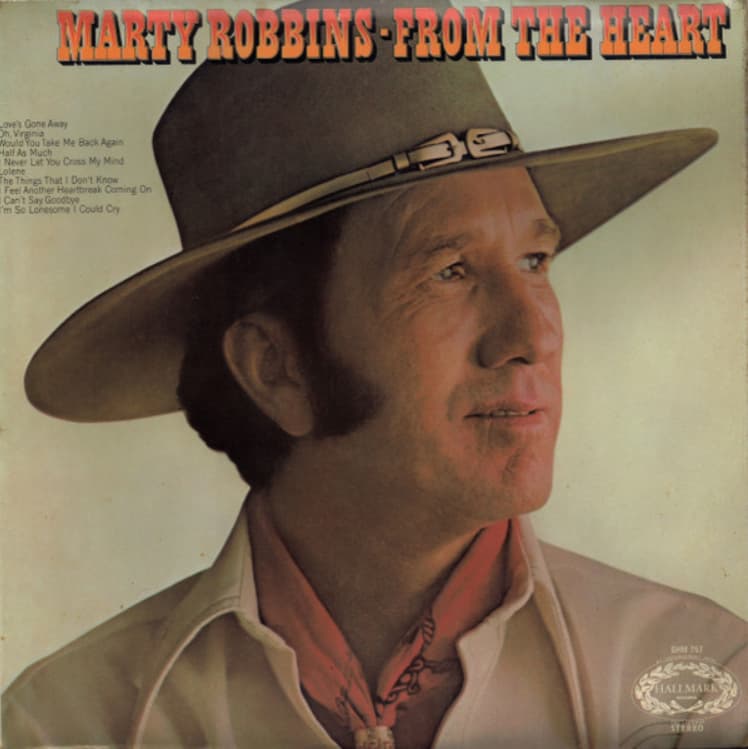
An unwavering heart finds its way home after a long journey.
The quiet, reflective ballad “Change of Heart” by the legendary Marty Robbins is a poignant masterwork that resonates deeply with anyone who has ever wrestled with the ghosts of their past. While not one of his most celebrated chart-toppers like “El Paso” or “A White Sport Coat (And a Pink Carnation)”, this lesser-known gem holds a special, sentimental place in the hearts of his devoted listeners. It was released in 1983 as the title track of his final studio album, “Change of Heart”, arriving posthumously after his passing in late 1982. This bittersweet fact imbues the song with an even greater sense of finality and profound emotion, as if it were a final message left behind.
Though it didn’t achieve the massive crossover success of his earlier hits, the song’s intimate and heartfelt lyrics speak volumes. It tells the story of a man who has lived a life of wandering and restlessness, only to realize that the love he left behind is the one true constant he needs. The “change of heart” isn’t a sudden, fleeting whim, but a slow and dawning recognition that his journey of searching and longing has been misguided. The song’s simple, almost sparse arrangement—with Robbins’ smooth, unvarnished vocals front and center—allows the weight of the words to settle in, like the dust on a long-abandoned road.
For those of us who grew up with Marty Robbins as the voice of our childhoods, this song is a beautiful and fitting farewell. It’s a reminder of a time when songs told stories, and a singer’s voice could transport you to a different place and time. It evokes memories of long drives on country roads with the radio playing, the static-laced melodies of songs about cowboys, drifters, and loves lost and found. “Change of Heart” feels like the final chapter of a lifetime of ballads. The song’s central message—that true love and home are worth returning to, no matter how far you’ve strayed—is a timeless theme that connects with listeners of all ages. For older generations, it might stir memories of youthful recklessness and the eventual peace found in a settled life and a steady love. It’s not just a song; it’s a reflection on a life well-lived, with its share of triumphs and regrets, and the ultimate wisdom that comes from a change of heart.